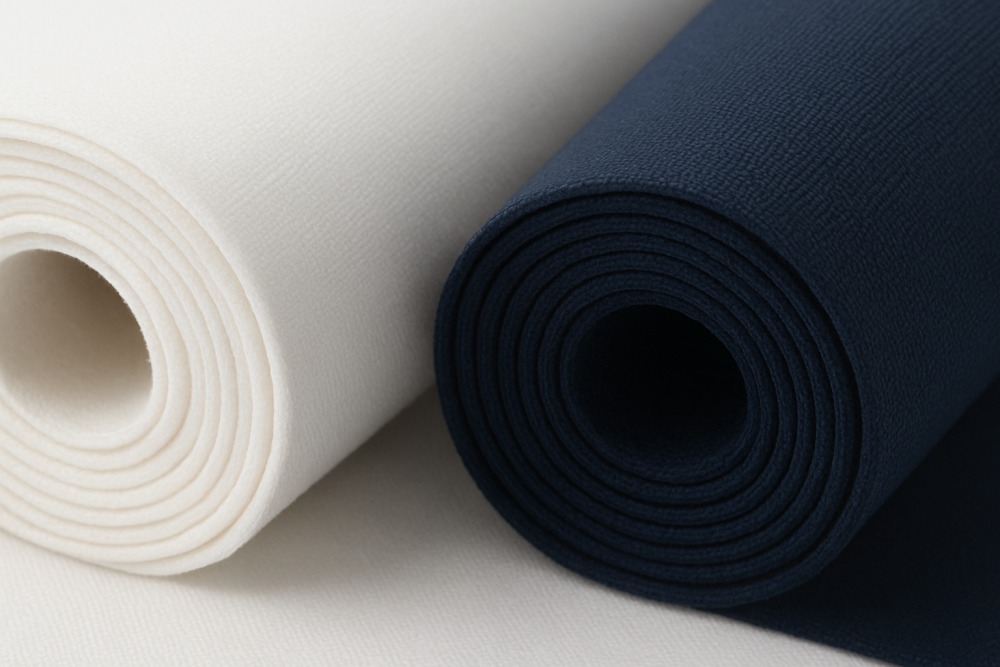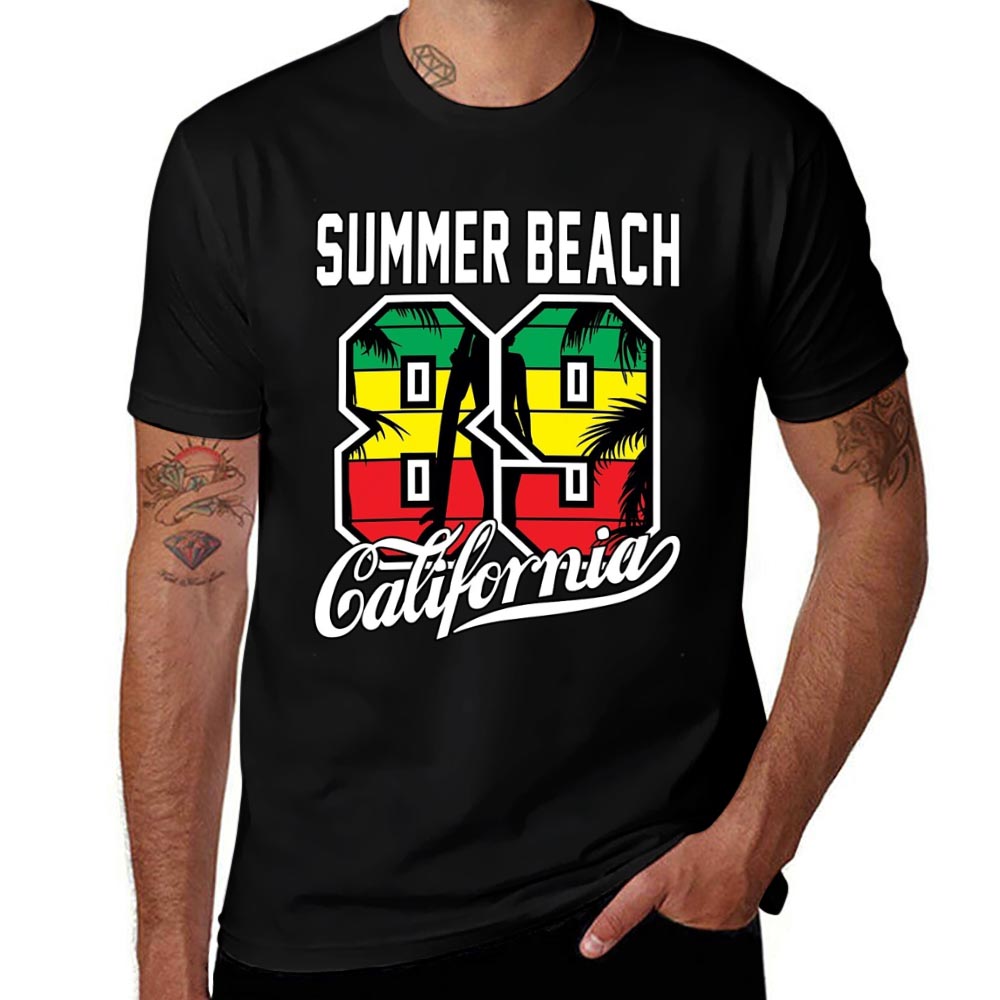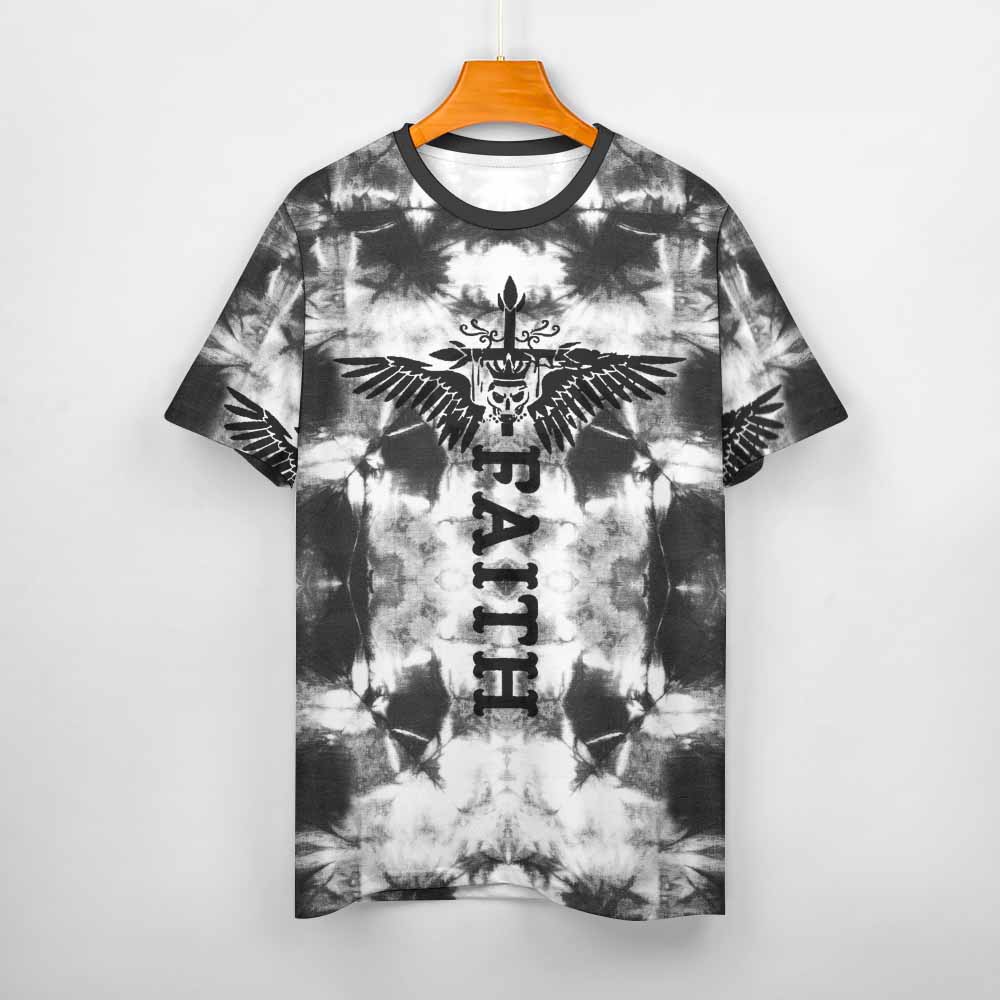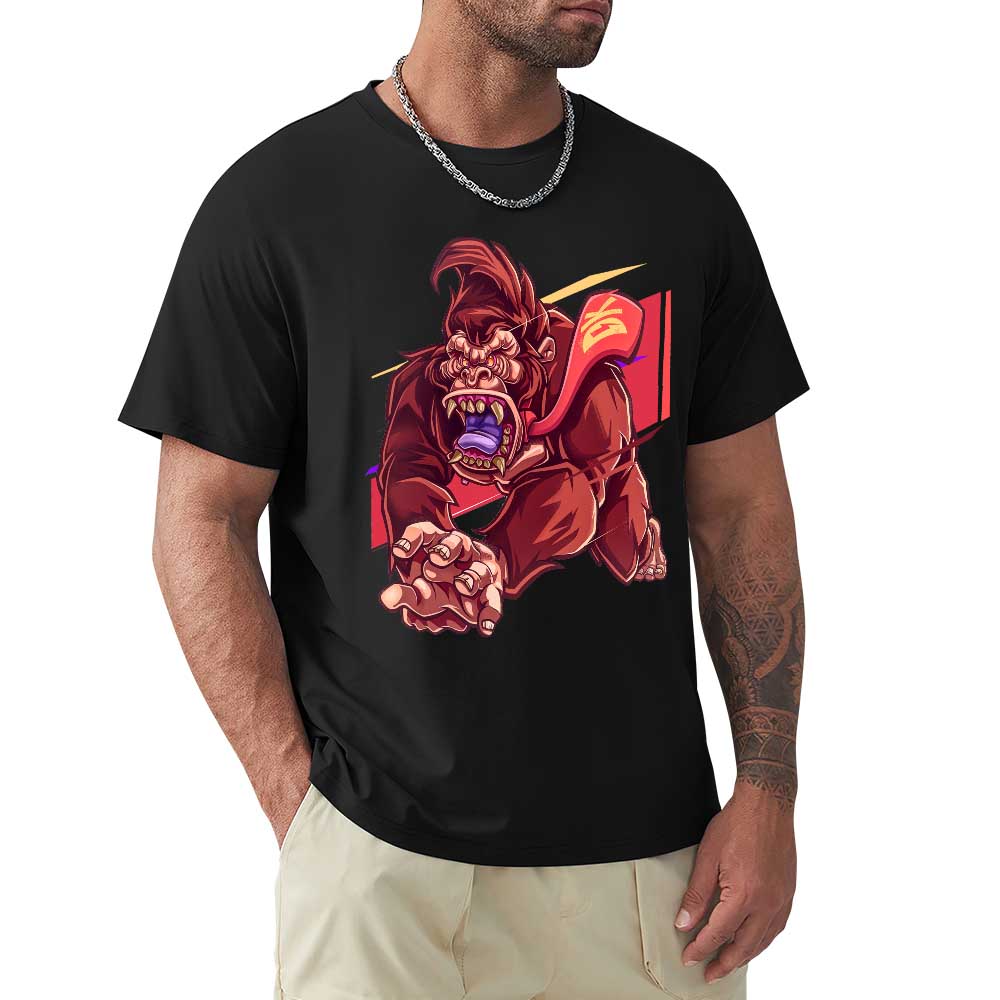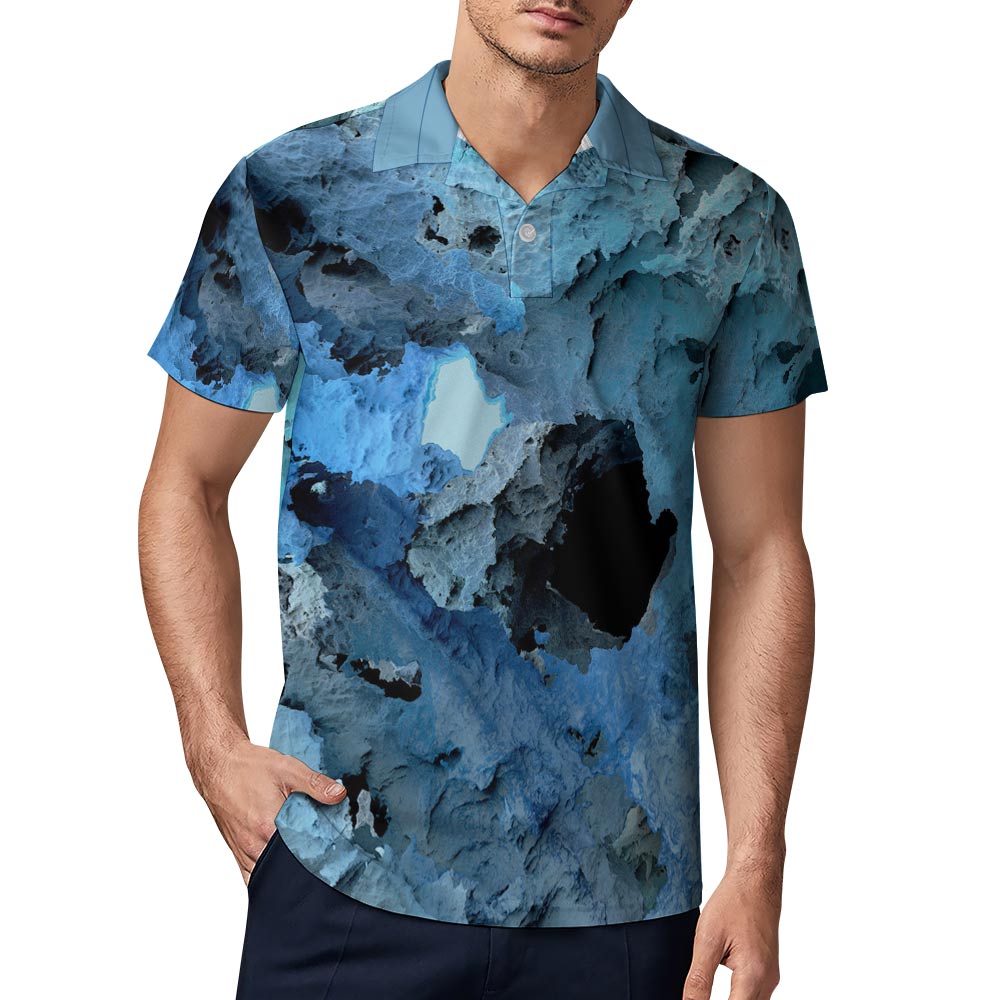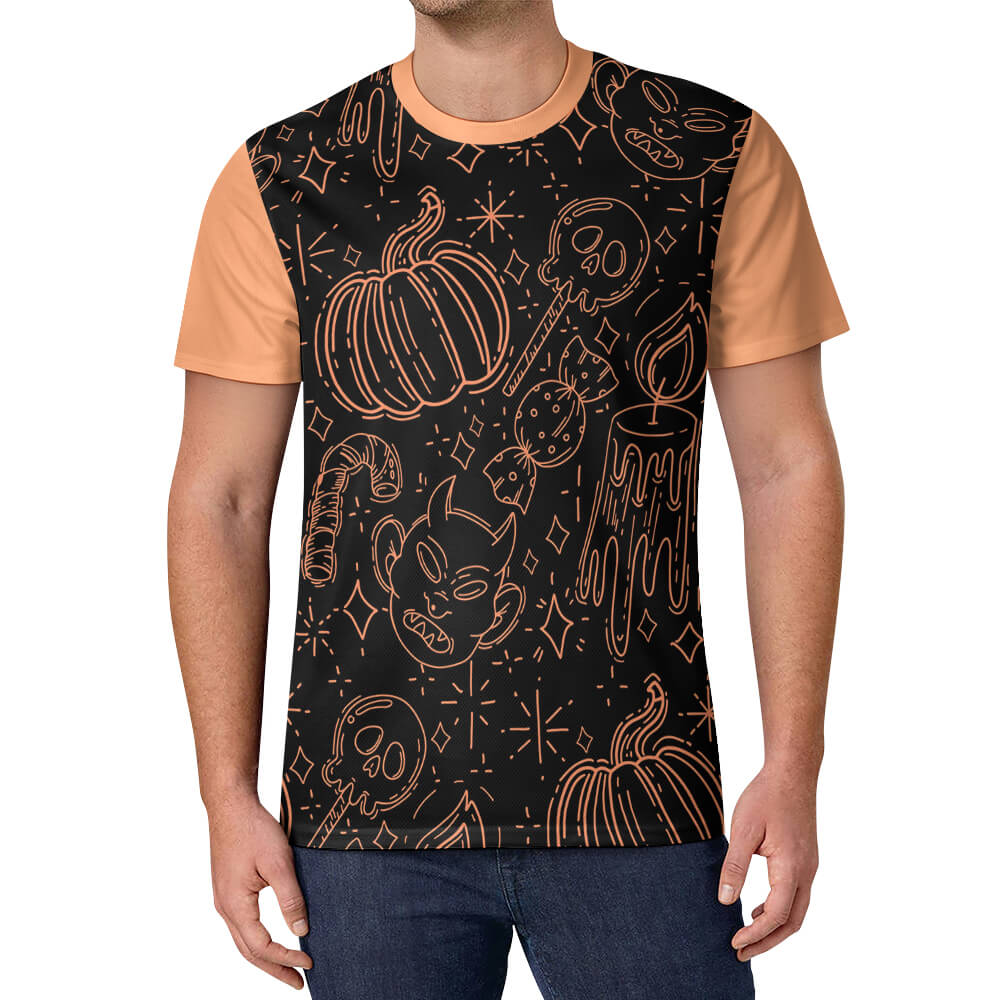Polyester vs. Cotton Shirts: Pros, Cons, and Print Quality Explained
When it comes to printing T-shirts on demand, choosing the right fabric is just as important as creating a unique design. The fabric determines the feel and durability of your product. In this article, we'll compare two of the most popular options: polyester and cotton shirts . Let's explore their pros, cons, and performance.
Polyester vs. cotton
What is cotton? It's a natural fiber extracted from the cotton plant and has been a staple of the textile industry for centuries. Known for its softness, breathability, and comfort, cotton is often considered the fabric of choice for casual wear and everyday T-shirts. But not all cotton is created equal. Ring-spun cotton is smoother and stronger than standard cotton, combed cotton has been removed of impurities for a finer texture, and organic cotton appeals to environmentally conscious consumers seeking sustainable clothing.
What is polyester? It's a synthetic fiber made from petroleum-based materials. Unlike cotton, it's not a natural fiber, yet it offers exceptional performance, surpassing cotton in durability, shrinkage resistance, wrinkle resistance, and quick-drying properties. This is why polyester is widely used in sportswear and other clothing.
Pros and cons of 100% cotton shirts
Before polyester and other chemical fiber fabrics were invented, cotton was first used to make T-shirts. In the early 20th century, cotton T-shirts were widely used by the US Navy and workers because of their simplicity, lightness, and sweat-absorbency. Later, they gradually became popular as daily clothing for the general public.
Cotton, a natural fiber, is affordable , comfortable, and versatile , making it a popular choice for the clothing industry. It also biodegrades quickly, making it environmentally friendly. Furthermore, cotton dyes very well, allowing it to be made into colorful fabrics for a variety of uses.
Pros
Breathable: Cotton shirts are soft to the touch and have excellent air circulation, making them suitable for daily wear in all climate conditions , keeping you feeling cool and comfortable.
Skin-friendly: This is the best choice for people with sensitive skin. As a natural fiber, it minimizes the risk of skin irritation and allergies.
Excellent printing compatibility: Cotton material is very suitable for direct-to-garment (DTG) printing, screen printing and heat transfer printing, which can create clear details.
Environmental protection: Cotton is a natural fiber and is biodegradable. Even if it is discarded at will, it will not cause too much pressure on the environment. It is very suitable for consumers who pursue environmental protection.
Market acceptance: Cotton shirts are classic and timeless. In the eyes of many consumers, cotton is even associated with quality , so most people are more likely to accept shirts made of cotton fabrics.
Cons
Shrinkage and wrinkling: Cotton garments shrink after washing and wrinkle easily, requiring frequent ironing if you want to maintain a wrinkle-free look.
Longer drying time: Unlike polyester, cotton absorbs moisture so it takes longer to dry and the absorbed sweat can easily lead to sweat stains.
Wears out faster: Cotton is a natural fiber and will wear out with frequent or vigorous washing.
Higher cost: Cotton fabrics are more expensive to produce than synthetic fabrics, so pure cotton shirts are more expensive.
Custom cotton t-shirts from PeaPrint
DTF 180gsm short sleeve cotton crewneck unisex t-shirt
This is one of our most popular T-shirts, offering excellent value. Available in classic black and white, sizes range from XS to 3XL. It features heat transfer technology and a regular fit to suit most body types, and is pre-shrunk to ensure it won't shrink.
DTG 190gsm cotton comfort short-sleeve t-shirt for men
If you're looking for a men's shirt, this is one of PeaPrint's most popular options. Slightly heavier than unisex tees , it offers a premium feel and a higher-perceived price. Made from high-quality cotton, it's soft, slightly stretchy, and comfortable.
For more color options, this cotton T-shirt comes in eight customizable colors to suit your style. Available in sizes from S to 6XL, it's perfect for every body type. Pre-shrunk to ensure the fit remains unchanged.
Pros and Cons of 100% Polyester Shirts
Polyester fiber was first synthesized by scientists from the British Imperial Chemical Company (ICI) in 1941. It was not until the mid-to-late 1950s that shirts, dresses, and sportswear made of polyester began to appear on the market.
Polyester fabric is a modern product and is at the forefront of innovation in the apparel industry . Shirts made from polyester also have excellent moisture-wicking properties and are very strong, which is why you'll find it used in many sportswear items.
Additionally, polyester fibers are wrinkle-resistant, allowing polyester shirts to maintain a smooth, wrinkle-free appearance and rarely require ironing.
Pros
Durability: Polyester fibers are strong, resist wear and tear, and resist shrinking and stretching, so polyester shirts maintain their appearance for a long time.
Lightweight and quick-drying: Polyester fibers are very light and wick away moisture, making them ideal for activewear or hot climates .
Wrinkle-resistant: Polyester clothing has good wrinkle-resistant effect and does not need to be ironed.
Lower costs: Polyester generally has lower production costs, keeping the base price low.
Cons
Poor moisture absorption: Polyester does not absorb moisture like cotton, leaving a "sticky" feeling after sweating. It is more likely to retain odors than natural fabrics , which may make people feel uncomfortable.
May irritate sensitive skin: Since polyester is a chemically synthesized fiber, it is not as soft and gentle as natural fibers and may cause irritation or allergies.
Quality perception: Some customers may perceive polyester as cheap compared to natural fibers.
Custom polyester t-shirts from PeaPrint
180gsm cooling polyester men's polo t-shirt
This men's cool polyester polo shirt is made from premium cool polyester material that's lightweight, breathable, and ultra-soft. It wicks moisture and dries quickly for all-day comfort. Its modern cut fits most body types while maintaining freedom of movement.
160gsm Ice silk cooling short sleeve men's shirts
This polyester men's shirt is made from a blend of 87% polyester and 13% spandex. It offers a soft, breathable feel with a silky smooth surface. The all-over print creates vibrant, colorful designs.
Print quality
Print quality is crucial in print-on-demand. Let’s analyze how these two fabrics perform in the most common printing methods.
Direct-to-Garment (DTG) Printing
Cotton shirts: Cotton is the gold standard for digital direct printing. This natural fiber absorbs water-based inks exceptionally well, resulting in crisp details, vibrant colors, and a soft, fabric-integrated print. White or light-colored cotton shirts are particularly well-suited for high-quality graphics.
Polyester shirts: Synthetic fibers don't absorb ink well, often resulting in dull colors, ink bleeding, or uneven coverage. Special pre-treatment is required, which increases costs and slows production. For point-to-point (POD) sellers using DTG, cotton remains the clear winner.
Screen Printing
Cotton Shirts: Screen printing on cotton creates vibrant, opaque colors with durable, long-lasting prints. Ideal for high-volume printing and designs with fewer colors.
Polyester shirts: Polyester is also suitable for screen printing, but it requires extra care during processing. Because polyester is heat-sensitive, printers need to use special low-bleed inks and precise curing techniques to prevent dye migration.
Sublimation Printing
Cotton shirts: Sublimation transfers don't bond well to natural fibers, so they work poorly on cotton. The print will fade, discolor quickly, or even not transfer at all.
Polyester shirts: That's the beauty of polyester. Dye-sublimation printing fuses the dye into the fiber, creating long-lasting, vibrant patterns that won't peel, crack, or fade. This makes polyester a great choice for all-over prints, activewear, and vibrant designs.
Heat Transfer
Cotton shirts: Works very well, especially with Heat Transfer Vinyl (HTV) and Direct to Film (DTF) transfers. Results are long-lasting, but the print may feel slightly thicker on the fabric.
Polyester shirts: Also suitable for heat transfer printing, the main challenge lies in the fabric's sensitivity to high temperatures. Care must be taken to avoid burns or leaving slick "heat marks" on the fabric. Using lower temperature settings and a protective film can help maintain quality.
Polyester vs. cotton shirts: which should you choose
The answer to this question is different for everyone, depending on needs and preferences. If your audience values comfort and natural fibers, cotton is a better choice. If you're looking for a lightweight, moisture-wicking, and durable T-shirt suitable for physical activity, polyester is what you need.
Is there a solution that has the best of both worlds? Yes, that is the blended T-shirt, which strikes a delicate balance between the two.
Are cotton-polyester blend t-shirts better?
For many print-on-demand sellers, the choice between cotton and polyester isn't always straightforward. This is where blended fabrics come in handy. What are blended fabrics? Blended fabrics are textiles made by mixing natural and synthetic fibers. The most common type of fabric used in clothing is polycotton, a blend of polyester and cotton in varying proportions. Blended T-shirts are made from this type of fabric. Different blends exhibit varying properties. Here are some common blends:
- 50/50 (50% cotton, 50% polyester): A balanced blend that provides equal softness and durability.
- 65/35 (65% polyester, 35% cotton): More wrinkle-resistant, more durable, and dries faster.
- Tri-blend (polyester, cotton, and rayon): Lightweight, ultra-soft, and popular in retail markets like fashion and streetwear.
FAQs
Is polyester or cotton better for shirts?
It depends on what you value most. Cotton is softer, breathable, and comfortable, making it a favorite for everyday wear and casual fashion. Polyester, on the other hand, is durable, wrinkle-resistant, and quick-drying, making it ideal for activewear and sublimation printing. For print on demand sellers, cotton works best with DTG printing, while polyester is unbeatable for sublimation designs.
Are polyester shirts more durable than cotton?
Yes, polyester shirts are generally more durable than cotton. Polyester resists shrinking, stretching, and wrinkling, while cotton can lose shape and color after repeated washes. However, cotton shirts are often more comfortable and appealing to customers who prefer natural fibers.
Which is better to wear in summer: a polyester shirt or a cotton shirt?
Cotton is usually better for hot summer days because it is breathable and absorbs sweat, helping the body stay cool. Polyester dries faster but doesn't breathe as well, which can make it feel warmer or stickier in humid conditions. For outdoor workouts, polyester may perform better, but for casual wear in the heat, cotton is more comfortable.
Are polyester shirts stretchy?
100% polyester shirts are not naturally stretchy, but they are woven to allow some flexibility. Many polyester shirts, especially athletic or performance wear, are blended with spandex or elastane to improve stretch and comfort. These blends are very popular in sportswear and POD catalogs where flexibility is important.
Conclusion
When it comes to polyester vs. cotton shirts, there's no single winner. The right choice depends on your audience, printing method, and brand positioning. Think about who you're selling to, how you plan to print your designs, and the overall look and feel you want your products to deliver.
At PeaPrint, you'll find cotton, polyester, and blended options to match any POD business model, so you can offer the right shirt for every customer.
